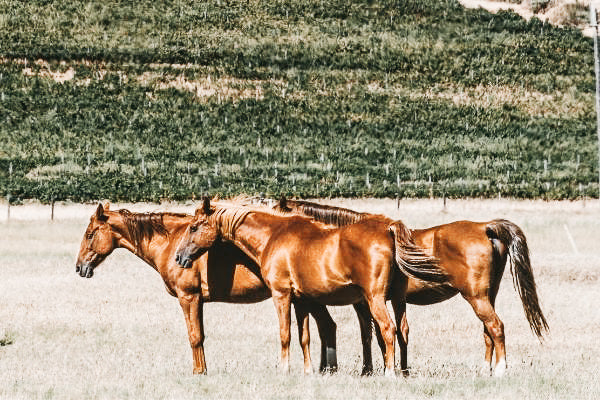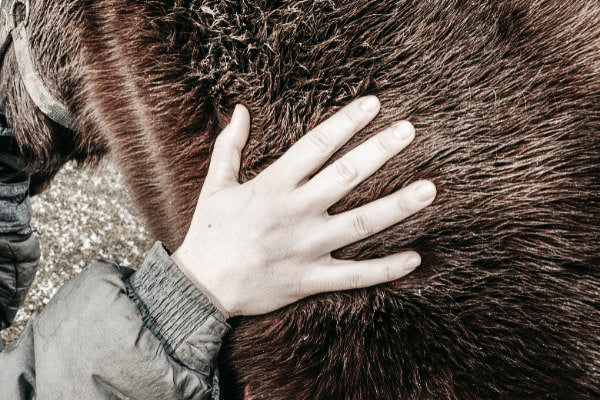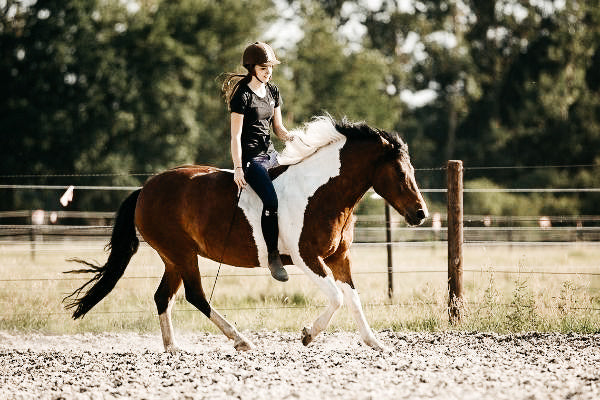
Pasture farming: advantages and disadvantages at a glance
Like all animals, horses also have individual needs. There are a few things to consider, especially when it comes to posture. Different forms of husbandry sometimes come closer and sometimes less closely to the natural needs of the equine animals. Pasture farming is described by horse owners as one of the most species-appropriate forms of husbandry . You can find out what this is all about and what advantages and disadvantages pasture farming offers here.
Needs of a horse in terms of husbandry
A horse has very special needs, when it comes to husbandry. An adequate supply of food and water is just the tip of the iceberg. Horses also need:
- lots of movement
- enough space
- social contacts
- Light
- clean air
Horses are flight animals. You need a lot of exercise and enough space to escape in stressful situations. Additionally, their bodies are not built to stand in confined spaces for long periods of time. Because this damages the tendons, ligaments, joints and bones.
In addition, the solipeds like to divide their habitat into different areas . They look for a place to sleep, a place to eat, and they also need enough space to play and run around with their peers.
Horses are herd animals. Keeping them in a herd is therefore preferable. However, care must be taken to ensure that the ungulates can stay out of each other's way and that each horse has enough space for itself. Lower-ranking horses must be able to eat, drink and sleep in peace.
If horses have no or too little contact with other horses, this leads in the worst case to severe behavioral disorders. For this reason, you should always keep at least two animals together.
Lots of light and fresh, clean air round off an ideal posture. Closed, smelly stables, on the other hand, have a negative effect on the animals' respiratory tract.
What is meant by pasture farming?
Grazing comes closest to the horses' natural lifestyle. With this form of husbandry, the animals spend the whole year with their fellow animals on a pasture – i.e. a large green area. A pasture allows animals to move freely and eat food in the form of grass at any time.
Species-appropriate grazing also includes shelter, which offers the animals protection from wind and weather . This is available either in the form of a stable or as a mobile solution. Weatherproof pasture tents for horses offer uncomplicated and quickly erected protection.
Benefits of pasture farming
Grazing is one of the best ways to keep your horse in a species-appropriate manner. It offers various advantages for both you as a horse owner and for the animal. First of all, grazing saves you a large portion of feed costs, as the animals mainly feed on grass.
In principle, pasture farming best supports natural eating behavior, because horses are long-term eaters. That means they eat approx. 16 hours a day with constant movement. Only enough space ensures this eating behavior. The grass also provides the animals with all the vitamins they need.
Grazing satisfies the natural needs of ungulates. It ensures extensive social contacts in the herd. In addition, they have enough opportunities to move freely and pursue their urge to move in sufficient form.
The advantages of pasture farming at a glance:
- lower feed costs
- Species-appropriate food intake
- good vitamin supply
- comprehensive social contacts
- Freedom of movement
Disadvantages of pasture farming
Grazing sounds very good, but it brings with it some challenges. The basic requirement that the project does not end in total disaster is that the characters of the horses match each other.
If the herd doesn't get along, there are lots of arguments and sometimes serious injuries. This often means great suffering for lower-ranking animals.
In addition, grazing makes it difficult to monitor the herd. Illnesses are often only recognized later and this sometimes makes it difficult to contain and treat them.
In addition, it is not possible to respond to the individual needs of the horses .
If an animal is needed, for example a special feed, feeding requires a lot of effort. Eating behavior is generally very difficult to control , which is why underfeeding or overfeeding often occurs.
If you decide on grazing, you must be aware that this does not work equally well all year round . In winter, the grass often no longer meets the horse's nutritional needs and it is necessary to supplement with a different feed.
The disadvantages of pasture farming at a glance:
- Herd quarrels
- difficult herd observation
- Eating behavior hardly controllable
- seasonal difficulties
Conclusion
So that you decide on the right form of husbandry, it is always important to take into account the individual needs of your horse . Older or sick animals, for example, are quickly overwhelmed by being kept on pasture and are often better off in larger stables. If you decide on pasture farming, it is important that you always keep the disadvantages in mind. Try to avoid these as best as possible. balance and ensure your horse a happy life.
Many thanks to Tent trade.de for this great guest article on the topic of pasture farming.
Discover more posts

Cushing's syndrome in horses - incurable but still well under control?
Equine Cushing's syndrome, ECS for short, is now causing discomfort to many horse owners. Unfortunately, among horse diseases, Cushing's is one of the most common "diseases of prosperity". Thi...
Continue reading
Neck ring riding – less is actually more
At trade fairs, show events or immortalized in YouTube videos - the interaction between rider and horse without a bridle and just a thin neck ring inspires the viewer. As soon as you...
Continue reading
